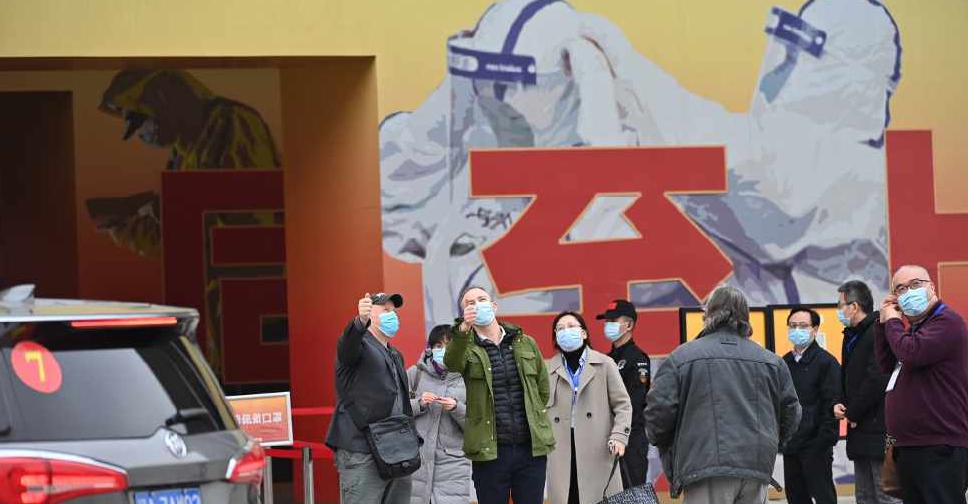
A World Health Organisation-led team of experts investigating the origins of COVID-19 in the central Chinese city of Wuhan was expected to visit Huanan market, where the coronavirus was initially detected.
Public access to the market - now barricaded with guards on round-the-clock duty - has been severely restricted since it was shut at the beginning of last year. Before its closure, it was a bustling market comprising hundreds of stalls divided into sections for meat, seafood and vegetables.
Some Chinese diplomats and state media have said they believe the market is not the origin, and have thrown support behind theories that the virus potentially originated in another country.
On December 31, 2019, after four cases of a mystery pneumonia were linked to the market, it was shuttered overnight. By the end of January, Wuhan had gone into a 76-day lockdown.
Experts say the Huanan market still plays a role in tracing the origins of the virus, since the first cluster of cases was identified there.
Following a two-week quarantine in the city that ended on Thursday, the WHO team is expected to visit laboratories, markets and hospitals in Wuhan.
No exact itinerary has not been announced, but the WHO has said the team plans to visit Huanan market and the Wuhan Institute of Virology.
The WHO-led probe in Wuhan has been plagued by delays, concern over access and bickering between China and the United States, which accused China of hiding the extent of the initial outbreak and criticised the terms of the visit, under which Chinese experts conducted the first phase of research.
The team had been set to arrive in Wuhan earlier in January, and China's delay of their visit drew rare public criticism from the head of the WHO, which former US President Donald Trump accused of being "China-centric".

 UK inquiry finds 'chilling' cover-up of infected blood scandal
UK inquiry finds 'chilling' cover-up of infected blood scandal
 Iranian President Raisi killed in helicopter accident, state media says
Iranian President Raisi killed in helicopter accident, state media says
 ICC prosecutor seeks arrest warrants for Israeli, Hamas leaders
ICC prosecutor seeks arrest warrants for Israeli, Hamas leaders
 Assange given permission to appeal against US extradition
Assange given permission to appeal against US extradition
 Israel intends to broaden Rafah sweep, Defence Minister tells US
Israel intends to broaden Rafah sweep, Defence Minister tells US




